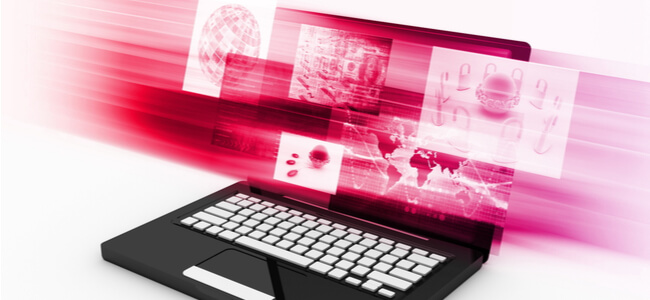Which Operating System Is Best For You When Security Is A Priority?

The operating system is the software that runs systems like your smartphone, PC, and server. When it comes to the OS for hosting servers, things work differently than it does for your PC or laptop.
Whether you own an established site or are thinking of starting a new business online, security is of the utmost importance. Data shows that over 30,000 new small business sites are hacked daily.
Wondering what Linux hosting is? Read on to learn more and the differences between Windows, macOS, and Linux. Additionally, learn about the security features necessary for picking the best OS.
Windows OS
Available for mobile phones, laptops, and servers, Windows NT was released in 1993. It went on to release several versions for desktops and PCs. Some of the famous ones are Windows 95, XP, Vista, 7, 8, and 10.
It runs a Windows-server edition released by Microsoft for hosting websites. This is unlike the OS seen on desktops and laptops such as Windows Vista or 10. It’s the only OS capable of running Microsoft-specific programming languages like ASP, ASP.NET, and so forth. Other apps from the same corporation such as Microsoft Access, Exchange, SharePoint, and so on are also strictly accessible via this system.
Beware that users get the MSSQL database with this operating system. Since this is a commercial product from Microsoft, you must pay the licensing fees out-of-pocket.
MacOS
An exclusive operating system from Apple, Macintosh OS is available across iPhones, iPads, Macbooks, and websites that build services for the macOS or iOS.
When it comes to desktops and laptops, Apple beats Microsoft and other open-source options in terms of installations, usability, and safety. You can even run Linux and Windows parallelly on this OS. However, there are also software and apps that strictly run on Apple’s operating system.
When it comes to macOS servers, service providers are scarce. That’s because it’s not popular for hosting unless you’re developing apps for iOS or macOS.
Linux OS
A Unix-like alternative that’s popularly seen on computers, printers, smart TVs, routers, and hosting platforms. It’s open-source and two years older than Microsoft’s NT 3.1. Hence, this OS comes with many more features and functions than its competitors.
Client-OS of Linux is a good fit for developers and other professionals working with open-source apps too. While it wasn’t as good as Macintosh or the Microsoft-OS earlier, today it has several GUIs better than its rivals.
That being said, Linux is the best option to keep the costs down for server owners because it’s free. Another perk of this system is its ability to run popular open-source apps like WordPress, Drupal, Ghost, and so on.
This operating system is sought-after for its versatility and ability to customize the server efficiency. It’s a great investment for embedded solutions as well.
Most Important Security Features To Consider
Before you jump into a decision on the perfect operating system, take a look at the key security checklist you’ll need below.
Malware Protection
For client-OS, Microsoft has a large market share. Therefore, it’s targeted more often by malware.
Windows 10 is equipped with a pre-built AV-suite that detects malware using reputation tests, YARA rules, and so forth. Macintosh in comparison has an elementary Gatekeeper and malware removal tool.
If compared, Linux hardly has any malware. That’s why it doesn’t come with an inbuilt malware tool. However, you can add it separately when needed.
For server-OS, malware protection is equally good. Each operating system is reliant on how you set up the scans, firewalls, and so on.
System Security
It’s important to look for an operating system that provides ‘round-the-clock’ protection and detection against problems. The best packages with a focus on safety come with one-click malware removal.
When it comes to Linux, the control is in your hands. For Windows, there are defense mechanisms called secure and trusted boots to prevent AV solutions from activating.
Technically, Macintosh is voted the best in terms of security. This is because of Apple’s System Integrity Protection (SIP) that’s automatically available on all their systems. Although, root access is denied on macOS.
The reliability of Linux and Windows in terms of server-security is dependent on the developer and not the OS.
Sandboxing
If your browser can run JavaScripts, sandboxing will help you prevent malicious attacks against your system. It provides a restricted space to carry out sensitive tasks without running untrusted processes that may affect the other files on the computer.
Windows and Macintosh systems come with sandbox apps, but the security isn’t fail-proof. When it comes to the Unix-variant, there are countless alternatives to the sandbox for securing your data easily.
The two best available variations on Linux are AppArmor and SELinux. This is why most experts say this system is safer than the others, especially for power users.
Codesigning
A little-known authentication tech that validates the source of incoming programs, codesigning is a crucial part of enterprise security today. It ensures that the files or executable packages aren’t rigged after approval.
All three of the operating systems we’ve discussed above uses codesigning in some way. However, all the OSs use an unsigned code as well. The issue arises when malicious parties replace the binaries in the code with their infectious programs.
When it comes to Windows and macOS, codesigning analyses are completed during installation and the initial run of every application. However, Linux doesn’t offer this added cushion of safety.
Bottom Line
Windows is a popular client-OS but Linux is the sought-after server-OS. The former is a common target for malware attacks; hence, it comes with many security tools. However, Linux offers complete control for users to customize their own security.
On the flip side, Macintosh is seldom used for server-OS unless for developing apps and services specific to macOS. When it comes to server security as opposed to system security, the efficiency of Windows and Linux depends on the developer. This is because both are stable and efficient on their own.




